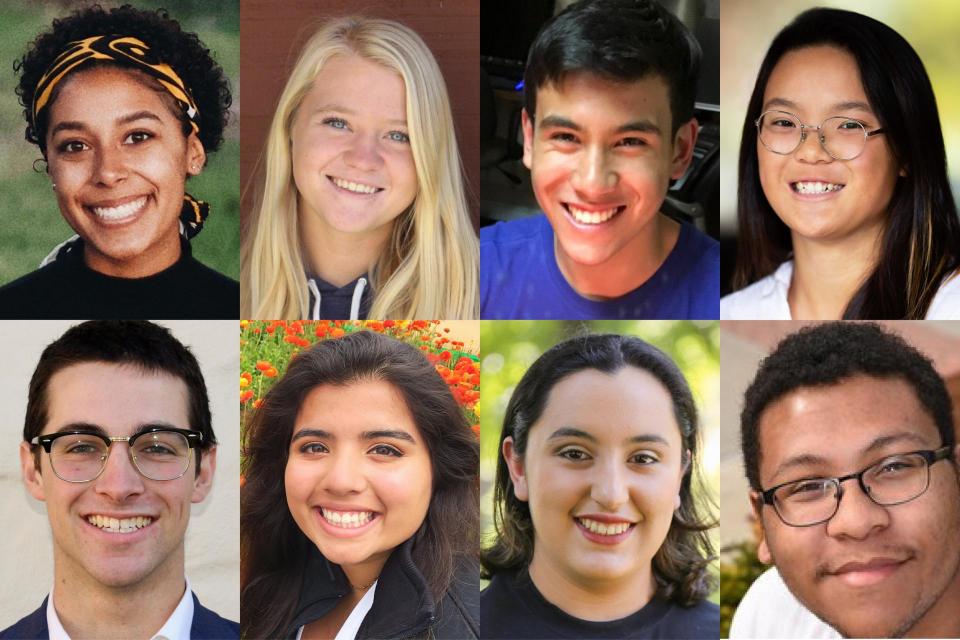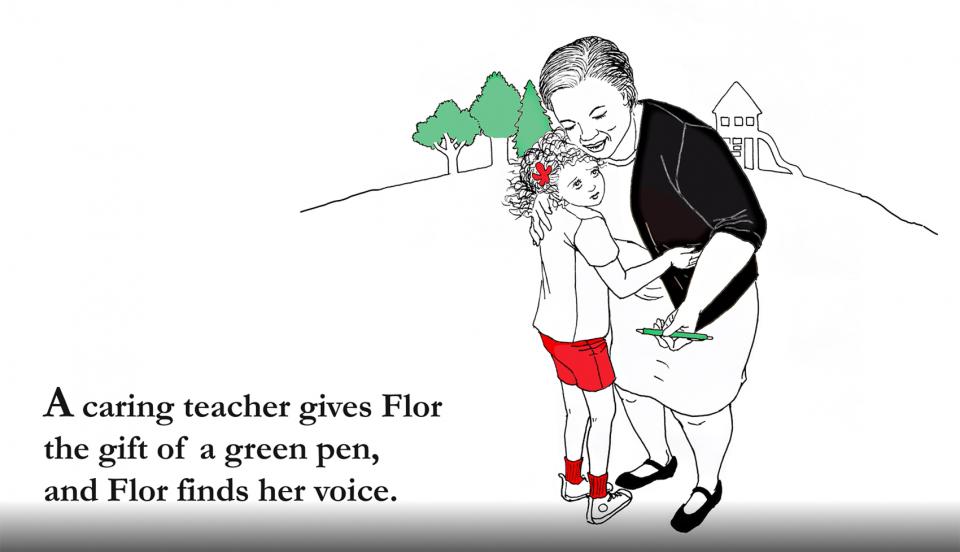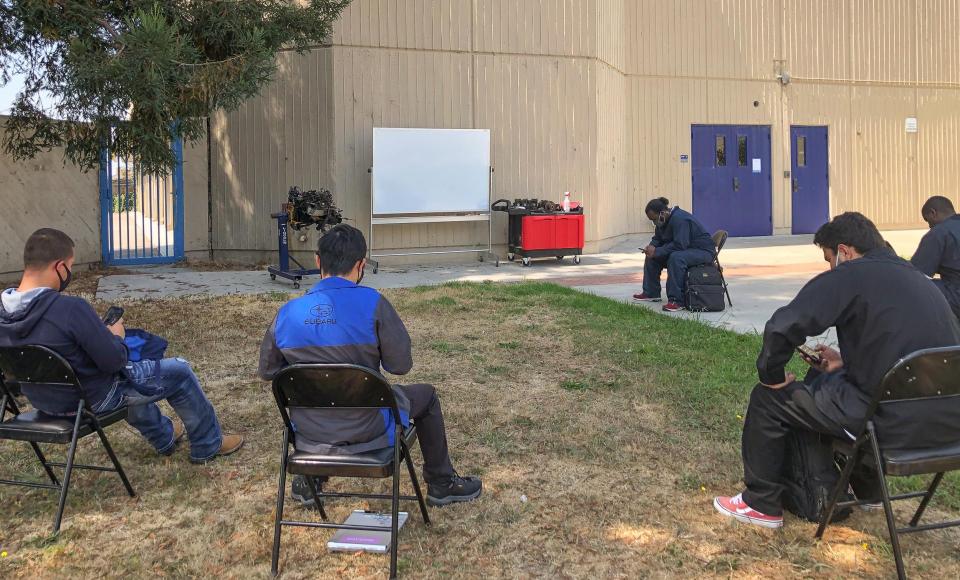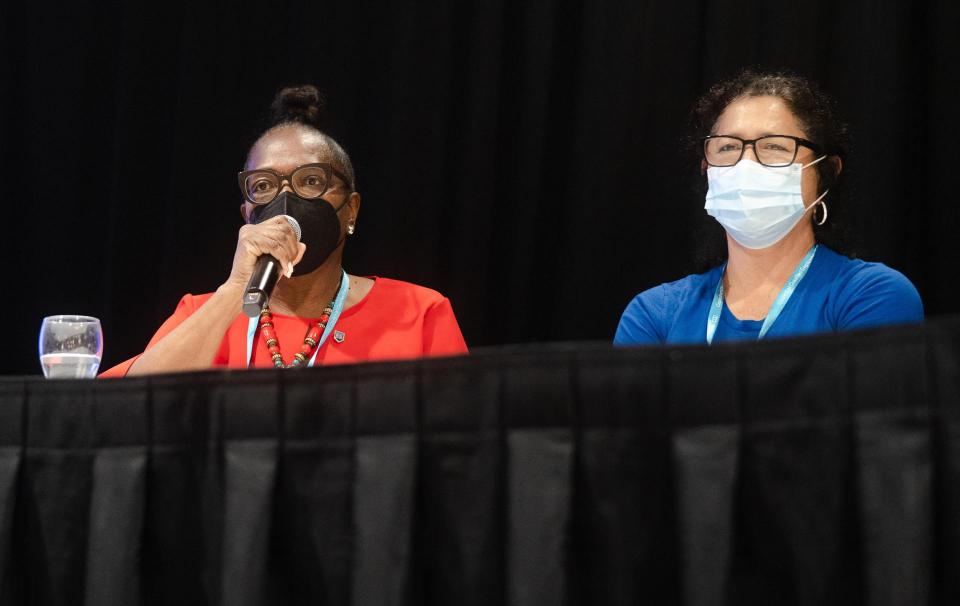Home Stay Connected
New AFT report shows pandemic wreaked havoc on nation’s adjunct faculty
Transition to remote learning, impact of virus lead to declines in job security, increased reliance on public assistance
WASHINGTON — A new national adjunct faculty survey from the AFT underlines the brutal economic reality faced by millions of contingent and adjunct faculty at the nation’s colleges and universities — and illustrates how the pandemic further eroded job security and bolstered the need for public help.
Worker action extends COVID Paid Sick Leave
Retroactive to January 1, 2022 and sunsets September 30, 2022
CFT and our labor partners have fought hard to reinstate COVID-19 paid sick leave. On February 9, Governor Newsom signed the COVID-19 Supplemental Paid Sick Leave legislation (Senate Bill 114) into law. This is a huge win that will help keep our workplaces and communities safe.
Supplemental Paid Sick Leave became available starting February 19 — ten days after the legislation was signed. Here is a summary of what is included in the new law:
- This leave is retroactively applied to January 1, 2022, and will sunset on September 30, 2022.
CFT launches campaign to secure healthcare for part-time faculty
“Adjuncts deserve, at the very least, the basic right of healthcare”
The pandemic has pushed many harsh realities in higher education to the forefront, none more so than the inadequacy of healthcare for part-time faculty. With the cost of an average COVID hospitalization, according to a number of sources, running in excess of $20,000, the financial effects alone on an uninsured part-timer contracting COVID can be devastating. Add a possible uninsured family member or members to the mix, and the reality becomes even more frightening.
What are the WEP and GPO and how will they affect your pension?
Now is the time to make our case to Congress
Retired Berkeley Unified teacher Bonnie Cediel taught for 16 years. She was married for 34, but her partial CalSTRS pension precludes her from receiving any Social Security spousal benefits. The Government Pension Offset, (GPO) passed in 1977, is the reason.
UC lecturers’ victory inspires broad movement for equity across higher education
CFT wages a campaign for part-time faculty in the community colleges
By Jeffery M. Freitas, CFT President
For about three years the University Council-AFT engaged in protracted negotiations on behalf of lecturers in their unit. Their aims have always been about fairness — better working conditions for lecturers and improved learning conditions for students. Their fight has been about not only winning economic and contractual gains for members, but gaining professional respect and recognition for their teaching at the University of California. Their campaign has been a true member-driven effort, rooted in years of organizing by the statewide local that represents both continuing lecturers and librarians, led by their president, Mia McIver, and a committed negotiations team.
Education sees another increase in governor’s state budget proposal
Legislative Update
Governor Newsom proposed significant increases for education and a 5.33% Cost-of-Living Adjustment (COLA) in his state budget for 2022-23 released January 8. In his proposal, the governor addressed five concurrent state crises — COVID-19, climate change, inequality, homelessness, and public safety — several of which are reflected in the education budget. This budget is a preliminary proposal subject to negotiations with the Legislature and will be revised in May, with its final passage in June.
UC lecturers greet new contract as “a game changer” and “only the beginning”
PHOTO GALLERIES
UC-AFT negotiates groundbreaking agreement
The view from Westwood
UCLA — It was about 3 a.m., UC-AFT President Mia McIver recalled, when negotiators for the University of California texted the administration’s “final offer.” McIver knew that all major contract issues, from job security to salary increases, were settled. She also knew that 6,500 lecturers were set to strike at all nine UC campuses in a few hours.
Teaching social justice and labor history: A how-to for K-12 educators
Kids' Book Reviews
Reviews by Bill Morgan
It used to be hard to find quality non-fiction, especially history, for kids. It was dumbed-down, or poorly formatted, or biased, or written in dry adultese, or some combination of these. Thankfully, that has changed.
A new generation of high-interest, attractively packaged kids’ books dealing with social justice issues and using leveled vocabulary are now available. This is a group of some of the best recent ones that I have used in my years teaching social studies for social justice.
CFT wins top awards in national labor media competition
Federation lands 11 awards for communications in 2020
In a friendly competition with state and regional labor groups around the nation, the CFT won 11 awards from the International Labor Communications Association.
The awards show that content is still king. The CFT website won First Place in “best electronic content” for the third year in a row. Seven member-based stories won awards, with four claiming First Place honors.
You can help start an AFT retiree chapter!
Retiree division sets sights on organizing more chapters
For most of her career, Kate Disney taught engineering at Mission College in the Silicon Valley city of Santa Clara. Disney learned the ins and outs of the West Valley-Mission Federation of Teachers contract when she became a union rep in 2017. She was elected president of the local in 2019.
“You learn about different sections of a contract as you go through different phases of your life and career,” she said. “Certain portions are more important at different ages.”
Work with formerly incarcerated, homeless students lands staff top honors
California Community Colleges honor two outstanding CFT members
Each year the California Community Colleges recognizes five classified employees for their leadership, commitment and ethics. The 2021 honorees include two dynamic and talented CFT members in the Los Angeles area.
Governor’s veto of AB 375 disappointing setback in push for increased workload cap
Legislative update for part-time faculty
“Bittersweet” might be the best word to describe CFT’s legislative efforts on behalf of part-time faculty this year, with gains in categorical funding, but a last-minute veto of the union-sponsored bill to raise the teaching cap in a single community college district from 67% to 85% — AB 375.
Answers to common questions about return to in-person
FAQ for teachers and support staff in TK-12 schools
Now that California schools have returned to in-person classes, teachers and staff on campuses up and down the state are having to navigate a new phase of the COVID-19 pandemic. In mid-August, the CFT held a tele-townhall meeting to connect directly with members and hear about your workplace concerns. Below are answers to the most common questions we heard from you.
What does classified work look like 20 months into the pandemic?
Staff shortages, vaccine mandates, strict school bus protocols, but also pay raises and lots of union support
California schools reopened to a new normal. Classified staff are getting their arms around vaccine mandates and making safety protocols part of their daily routines. And nearly every district, from rural elementaries to urban community colleges, are facing serious labor shortages.
What’s on everyone’s mind? The return to in-person
From urban to rural, community college locals weigh in
Most faculty members, staff, and students at the state’s community colleges have been teaching, learning, and working online for more than a year and a half due to COVID-19. Many planned to go back to their campus in the fall semester, but after a brief period of hope that the virus was on the way out the delta variant emerged in the summer, and in many areas, COVID is surging again.
History, solidarity, reunion mark annual Classified Conference
PHOTO GALLERY
The annual Classified Conference was held October 15-17 with nearly 125 people making the trek to Las Vegas for CFT’s first in-person conference and a pre-pandemic style but COVID-safe program with plenary sessions, workshops, and social events.
Classified staff and paraprofessionals were happy to see each other again after nearly 19 months of pandemic isolation, and a virtual conference last year. They joined together under the theme “Classified Professionals — The Heart of Education.”
New coalition groups take bold steps for higher ed justice
Higher Education Labor United expands labor outreach
Several months ago, when Congress began the budget reconciliation process, there were significant aspirations that the final bill would result in a significant uptick for higher education, including funding for free community college.
Back-to-School Tour puts staff shortage in stark perspective
Dedication and inspired work of our members must be recognized
By Jeffery M. Freitas, CFT President
In early August, Luukia Smith, Lacy Barnes, and I ventured up and down the state on a three week Back-to-School, Forward Together Tour. We visited with early childhood educators, TK-12 teachers, classified workers, adult education teachers, and part-time community college faculty. We witnessed firsthand students learning in-person. We saw the incredible school communities our members have helped to build and visited campuses and classrooms to see CFT members in action.
Back to the classroom, but no contract
Facing inequity, lack of COVID protections, 96% of UC-AFT members vote to authorize strike
As they have for the past two years, lecturers at the University of California continue their effort to get the administration to bargain a fair contract. The last agreement between the university and the University Council-AFT, expired on January 31, 2020. The union’s negotiating committee has met with UC’s bargaining team on 50 occasions, yet the four most fundamental issues are still outstanding — high turnover rates, lack of performance reviews, widespread uncompensated labor, and compensation itself.




















